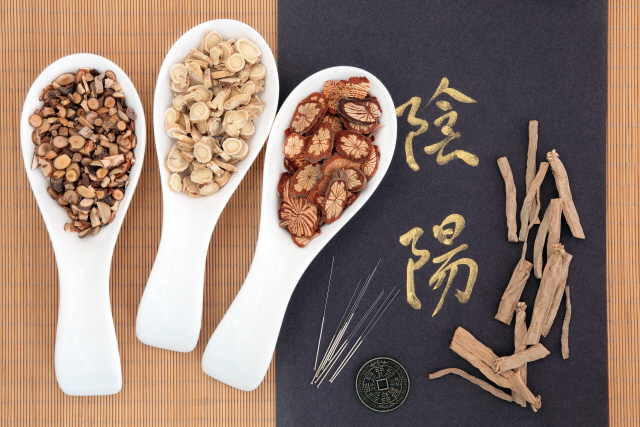
Buzhong-Yiqi-Tang treats one who has a weak digestive function
The formula should be distinguished from Renshen-Yangying-Tang and Shengxian-Tang
By Ju Bong Kang, KMD
Buzhong-Yiqi-Tang is a prescription for treating the syndrome of qi deficiency of the spleen and stomach and the formula restores the lack of qi of the middle energizer and the collapse of the middle energizer qi, benefiting qi and lifting-yang. So it relieves symptoms such as chronic fatigue, loss of appetite, spontaneous perspiration, night sweat, aversion to cold, dispiritedness, weakness, nervous breakdown, and hypotension, and improves gastroptosis, anal prolapse, and metroptosis due to collapse of middle-energizer-qi. This prescription is versatile by adding or subtracting necessary herbs to be more customized to treat symptoms due to qi-deficiency syndrome for patients with poor appetite and weak digestion function.
Buzhong-Yiqi-Tang treats symptoms mainly caused by weak digestive function due to
overwork and stress. The overwork and stress disturb digestive juice secretion, and intestinal mobility and activity decrease. Alternatively, there is no fever, but mild fever may appear due to non-serious chronic bronchitis. In this case, prescriptions such as Shao-Caihu-Tang or Sijunzi-Tang are combined with this prescription according to the symptoms. If it is not severe, Banxia can be added for rhinitis or cough, and Fuling can be added for borborygmus or diarrhea, and if there is constipation, increase the amount of Danggui or add Houpo and Zhishi, respectively.
If the symptoms of dispirited sensation and lassitude caused by the collapse of middle-energizer-qi become more severe, depression and panic disorder could be seen. For this case, the dose of Huangqi should be determined by pulse diagnosis to treat the symptom. In this case, Shengxian-Tang is used by adjusting some drugs according to the symptoms.
Role of herbs in the formula
Among the constituent herbs, Huangqi is a monarch herb that invigorates the spleen, benefits the lung, and lifts yang and qi. It treats a wide range of symptoms related to qi-deficiency, including fatigue, aversion to cold, sweat, albuminuria, acute and chronic nephritis, edema, carbuncle, paraplegia, parathyroid, and apoplexy due to depression, insomnia, depression, and panic disorder.
Renshen, Baizhu, and Gancao work as minister drugs. Renshen has the functions of benefiting-qi, promoting the production of body fluid, and tranquilizing the mind. It relieves fatigue, vomiting, asthma due to qi deficiency, spontaneous perspiration, astonishment, forgetfulness, anxiety, vertigo, pollakiuria, impotence, diabetes, metrorrhagia, and intermittent infantile convulsion.
Baizhu invigorates the spleen, benefits qi, dry dampness and improves appetite loss, indigestion, diarrhea, lassitude, perspiration, fetal instability, and others. Gancao benefits qi, detoxifies, alleviates the urgency, mediates the effects of several other drugs, and serves as a guiding drug.
Danggui and Chenpi act as adjuvant drugs. Danggui nourishes blood, activates blood circulation, and strengthens the body. Chenpi regulates qi, promotes digestion, and resolves phlegm. Thus, Danggui and Chenpi prevent and improve qi stagnation and blood and food retention. A small amount of Shengma and Caihu assist lifting-yang and pulling-subsidence by Huangqi and have the effect of raising and dispersing the stagnated qi by the invigorating drugs. These two become adjuvant and guiding drugs, along with Shengjiang and Dazao, which benefit qi, eliminate phlegm, and regulate the spleen and stomach.
Things guide to the formula selection
In diagnosis, the pulse should be weak and fine. The abdomen is mostly feeble, and an inappetence and depressed appearance is present. Tsda Gensen, a Japanese clinician, cited the following eight conditions for applying the prescription: (1) weak extremities, (2) small voice, (3) lassitude eyes, (4) foam at the mouth, (5) loss of the taste of food (6) favoring hot drinks (7) palpitation detected on or near the navel (8) the pulse is large, scattered and weak. If patients with severe illness and fever should be ruled out, the prescription can be useful in a wide area.
Application
- Fatigue, weariness, lack of appetite, spontaneous perspiration, night sweat, aversion to cold, weakness, depression, nervous breakdown, low blood pressure, gastroptosis, anal prolapse, metroptosis, etc., due to the collapse of the middle energizer.
- Applicable as a prescription with a tonic effect for children who usually have a poor appetite and easily catch a cold during the change of seasons, a small amount of Lùróng can be added to promote height growth.
- For children with severe enuresis, add Longu, Muli, Qianren, Lianziru, Shanzhuyu, Fupenzi, Duchong, and Tusizi to the prescription that combines Buzhong-Yiqi-Tang and Lingjian-Zhugan-Tang.
- Effective for a person who has symptoms of paraplegia.
Should be distinguished from:
- Renshen-Yangying-Tang: Unlike Buzhong-Yiqi-Tang, there is some degree of hypertonicity, which is the signal symptom of Shaoyao, and subsidence of the lesser abdomen, which is the signal symptom of Shudihuang.
- Shengxian-Tang: This prescription is used when the collapse of initial-qi or collapse of great-qi occurs, which is more severe than the collapse of middle-energizer-qi of Buzhong-Yiqi-Tang.
[Ingredients]
|
Huangqi |
sweet, warm |
黃芪 |
|
Renshen |
sweet, slightly bitter, slightly warm |
人蔘 |
|
Baizhu |
bitter, sweet, warm |
白朮 |
|
Danggui |
sweet, pungent, warm |
當歸 |
|
Chenpi |
pungent, bitter, warm |
陳皮 |
|
Caihu |
bitter, slightly cold |
柴胡 |
|
Shengma |
pungent,slightly sweet, slightly cold |
升麻 |
|
Gancao |
sweet, mild |
甘草 |
|
Shengjiang |
pungent, slightly warm |
生薑 |
|
Dazao |
sweet, warm |
大棗 |
































